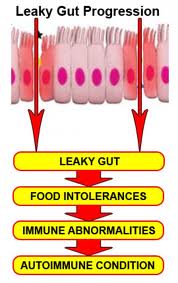Sjögren’s syndrome is a chronic inflammatory autoimmune condition that can affect many different parts of the body, but most often affects the tear and saliva glands. Patients with this condition may notice irritation or painful burning in the eyes. Dry mouth (or difficulty eating dry foods) and swelling of the glands around the face and neck are also common. Some patients experience dryness in the nasal passages, throat, vagina and skin. Swallowing difficulty and symptoms of acid reflux are also common. Sjögren’s syndrome can occur at any age, but is most common in older women and affects 10 times as many women as men.
About half of patients develop Sjögren’s syndrome as a complication of another rheumatic autoimmune disease. “Primary” Sjögren’s syndrome occurs in people with no other rheumatic disease. “Secondary” Sjögren’s occurs in people who have another rheumatologic disease, most often lupus (SLE) or rheumatoid arthritis (RA).
Most of the complications of Sjögren’s syndrome occur because of decreased tear and saliva production. Patients with dry eyes are at increased risk for infections around the eye and may have damage to the cornea. Dry mouth may cause an increase in dental decay, gingivitis (gum inflammation), and oral yeast infections (thrush) that may cause pain and burning. Some patients have painful swelling in the saliva glands.
Complications in other parts of the body can occur. Pain and stiffness in the joints with mild swelling may occur in some patients, even in those without rheumatoid arthritis or lupus. Rashes on the arms and legs related to inflammation in small blood vessels (vasculitis) and inflammation in the lungs, liver, and kidney may also occur.

A comprehensive approach to the management of complex conditions such as autoimmune disease must take into consideration many aspects of health, including gut barrier integrity and imbalances of gut flora, liver detoxification capacity and toxic burden, hormone imbalances, energy production capacity, nutrient status and most importantly, immune imbalances which promote autoimmune states. More specifically, Functional Medicine approaches autoimmune disease by identifying the triggers and mediators of the autoimmune attacks, minimizing the self-destructive immune responses and enhancing the body’s ability to recover from flare-ups.
There are 4 areas of management of autoimmune conditions in the Functional Medicine approach:
Lab testing is a critical first step in identifying the extent of systemic inflammation and ruling out many environmental insults which act as triggers and mediators of autoimmunity, such as chronic infection, heavy metal toxicity and decreased capacity to perform liver detoxification. Food sensitivities can also promote inflammation and potentially drive autoimmune responses. Identifying and addressing these issues is critical in autoimmune patients to minimize damage and promote restorative function.
Functional Medicine addresses diet and lifestyle issues as well as using anti-inflammatory and immune-modulating herbs and nutritional compounds to decrease immune responses to self-tissue. Identifying the triggers of autoimmunity and modulating the immune response can have powerful long-term positive effects on slowing or stopping tissue destruction and improving quality of life.
There are a number of natural compounds that help support a faster recovery by breaking down offending triggers, increasing blood flow to target tissue, and dampening the immune response.
 Addressing Associated Conditions and Promote Autoimmune Responses
Addressing Associated Conditions and Promote Autoimmune ResponsesThere is growing evidence that increased intestinal permeability plays a pathogenic role in various autoimmune diseases. Increased intestinal permeability and compromised gut integrity appears to precede AI disease and predisposes to immune activation and chronic inflammation. Assessment and proper restoration of the integrity of the intestinal barrier is crucial in managing autoimmune conditions. Read More on Leaky Gut
There is growing evidence that increased intestinal permeability plays a pathogenic role in various autoimmune diseases. Identifying the existence of intestinal permeability and addressing this condition, leads to a more comprehensive and satisfactory outcome in the autoimmune patient.
Milpitas: 408-262-6606
1649 S. Main Street, Ste. 102
Milpitas, CA 95035
Oakland: 510-350-8082
6232 La Salle Ave
Oakland, CA 94611